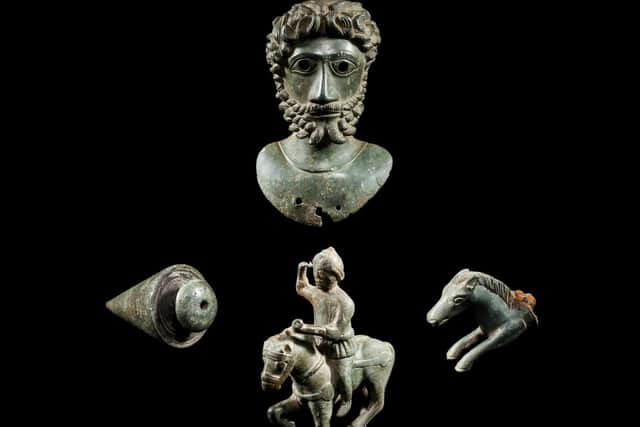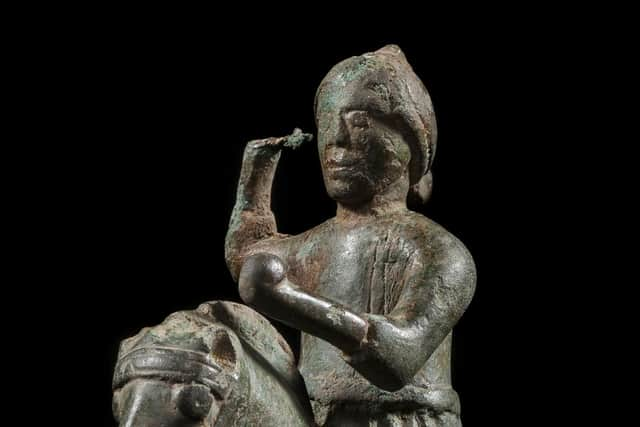Roman Ryedale Bronzes: 1,800-year-old Roman hoard to go on display at Yorkshire Museum
The “truly exceptional” Roman hoard was found by metal detectorists in a field near Ampleforth, in Ryedale, in May 2020, and has been acquired by the Yorkshire Museum, where it will go on display next spring.
The artefacts, which include a bust of the Emperor Marcus Aurelius, are said to be among the finest known from Roman Britain and are in an “outstanding condition”.
Advertisement
Hide AdAdvertisement
Hide AdIt is hoped that the collection, known as the Ryedale Roman Bronzes, will help tell the story of rural Roman Yorkshire and increase understanding of the period across the north of England.


It is believed to have been buried as an offering to the gods as part of a religious ceremony and also includes a statuette of Mars, the God of War; a handle shaped as part of a horse that is thought to have come from a knife; and a plumb bob used for engineering projects.
The 13cm bust of Marcus Aurelius, which would have topped a sceptre or priestly staff, offers rare direct evidence of the Imperial Cult – the Empire-wide worship of emperors as divine – and the detailed depiction of Mars is of a type that has never previously been found as far north.
The inclusion of the plumb bob in the hoard is unparalleled in Roman Britain and hints at a blessing of an act of landscape engineering.


Advertisement
Hide AdAdvertisement
Hide AdDr Andrew Woods, senior curator of the Yorkshire Museum, said: “The Ryedale Roman Hoard is a find of national significance and great rarity. Each of the bronze objects exhibit exceptional artistic quality and craftsmanship, making them stand amongst the finest artefacts known from Roman Britain.
“It is a truly exceptional collection of Roman objects and, together, they have the potential to greatly add to our understanding of the Romans in Yorkshire and across the North.”
Dr Woods added: “Most of the museum’s nationally significant Roman collection derive from urban centres. This hoard will allow the museum to tell the important story of rural Roman Yorkshire, while highlighting Roman activity in an area of the county where previously little was known.”
The hoard, which dates from the later 2nd Century AD, will initially be on display at the Frieze Masters in London, from October 13 to 17, before becoming part of the Yorkshire Museum’s existing Roman collection.
Advertisement
Hide AdAdvertisement
Hide AdThe museum acquired the collection from previous owner David Aaron as a result of donations from American donor Richard Beleson, individual donors and funding through Art Fund.
Mr Beleson, who is from San Francisco, has been interested in Roman Britain since his childhood and has visited York twice since 2010.
He said: “The minute I saw the bronze bust of Marcus Aurelius, I knew there was only one place in the world it belonged – the Yorkshire Museum.”
Reyahn King, chief executive of York Museums Trust, said: “On behalf of York Museums Trust, I am incredibly grateful to Richard Beleson, Art Fund, the other individual donors and David Aaron, who have made the purchase of this incredible hoard possible.”
